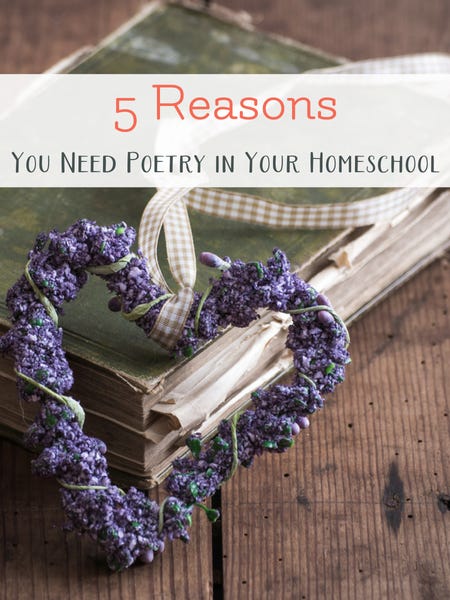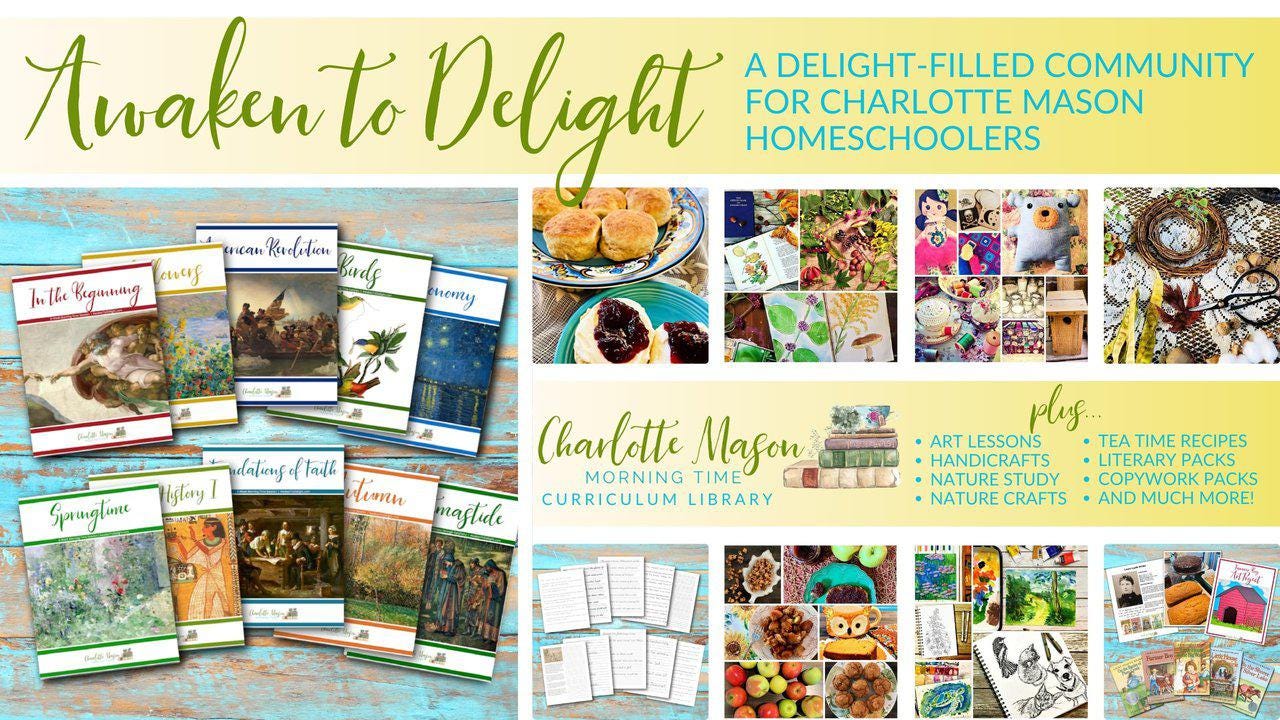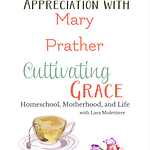As a child, I would sit enraptured with the rhythm and rhyme of Dr. Seuss. The way the words rollicked about inducing fits of giggles and tied-up tongues was the beginning of my love of poetry.
When I entered school, however, I nearly lost that joy. There was so much analysis and dissecting that Shakespeare almost lost his polish. Every single poem we came across had a "meaning" that the teacher would pound into our heads while pounding the poetry out of our souls. It was a positively pernicious poetry unit study.
I am grateful to be of service and bring you quality homeschool and homemaking content. I receive compensation through subscribers, curriculum sales, and affiliate links. As an Amazon Associate I earn from qualifying purchases.
Thankfully, I kept reading it anyway. From The Lady of Shalott (Thank you to Anne with an "E" for the introduction to Tennyson) to Shakespeare, to Silverstein, I never abandoned my love of verse.
Knowing that I wanted my boys to also enjoy the delights of poetry led me to do some more research on why exactly poetry is so fantastic for the minds of our children which led me to incorporate even more poetry into our curriculum selections through morning time and recitation. Here's what I found!
Why We Need to Teach Poetry in Homeschool
Poetry encourages memorization skills.
It’s the patterns, rhythms, and sequences involved in poetry that helps a child memorize a poem. As she practices memorizing a poem, her mind links her memory to the sounds and the visual set up of the poem. This turns into a skill that pours out into all areas of education, including learning new languages and even in mathematics.
Poetry enhances vocabulary.
Memorizing words and their meanings is made lightyears easier through poetry. Those unfamiliar words have a place in the sea of words, giving it context and thus making it easier to remember. The vocabulary word moves off the long list of empty and seemingly meaningless words for a test, and moves into a comprehensible place where your child can use it in real life.
Poetry develops reading comprehension.
Poems are typically fairly short texts, making them more manageable for the struggling reader. Longer passages can be overwhelming to the struggling or learning reader. Poetry can ease them into reading comprehension. As your child becomes more comfortable with poetry, he might not be quite as afraid to tackle something longer. On top of that, the rhythm and rhyming patterns can help your student to predict the next words or phrases.
Poetry allows for creative expression.
Just like music and art allow us to express ourselves in unique ways, poetry gives your child that very same opportunity. There’s freedom in writing poetry. There’s emotion in writing poetry. It’s an expression of the heart. It’s also challenging, urging your little writer to think outside the box and reach places in her creative mind she may have never tapped otherwise.
Poetry motivates the reluctant writer.
Whatever the reason is for your child’s reluctance to write, the freedom that poetry offers may be just the thing. Not only does it allow for personal expression, but it also helps calm the overwhelm by the shorter length. Even if it’s just the fun of finding rhyming words that motivates your reluctant writer, he is writing poetry. And that’s a wonderful thing!
All five of these reasons make a homeschooling parent happy, which translates into more poetry in your homeschool. Meanwhile, your unsuspecting student is benefitting from all of these things while simply learning to love the beautiful art of poetry.
Lara’s Favorite Homeschool Poetry Resources
IEW Linguistic Development Through Poetry curriculum - this has been a staple in our homeschool for years.
Gerard Manley Hopkins: The Major Works
















Share this post